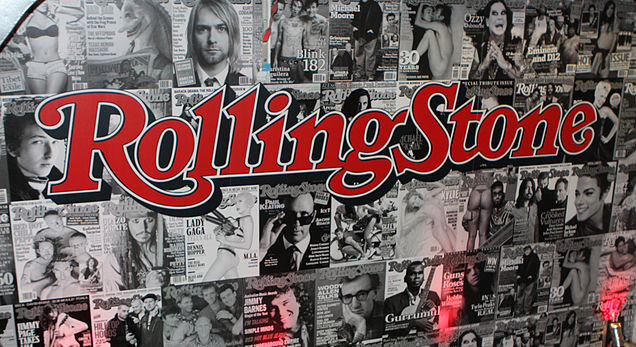Louis C.K., responding to a question on the Daily Show about a Rolling Stone article, replied: “Well they put that kid on the cover that blew up Boston, so fuck them.” Louis was being glib, and he’s such a thoughtful comedian that I suspect he might actually have more interesting things to say about the controversy surrounding the magazine’s cover image of alleged terrorist Dzhokhar Tsarnaev. But his remarks express the opinion of many people, including many residents of Boston.
A lot of good commentary has been written about this issue, but I’d like to highlight an article by Ian Crouch of the New Yorker. Crouch writes:
Yet the vitriol and closed-mindedness of the Web response to the Rolling Stone cover, before anyone had the chance to read the article itself, is an example of two of the ugly public outcomes of terrorism: hostility toward free expression, and to the collection and examination of factual evidence; and a kind of culture-wide self-censorship encouraged by tragedy, in which certain responses are deemed correct and anything else is dismissed as tasteless or out of bounds.
These are two important points, but I’d argue that this self-censorship goes beyond terrorism. Americans seem increasingly unwilling to meaningfully engage with conflicting viewpoints. It’s true that the media, from talk radio to cable news, is dominated by arguments. But do we tune into these media outlets to have our opinions swayed, or merely confirmed? The fragmentation of the media means that it’s possible to select the news source that most comfortably fits with your worldview.
The narrative around the marathon bombing is that Tsarnaev is a monster, and it’s an easy and understandable narrative. Rolling Stone used this very word on their cover. But the cover does not fit nicely into this narrative, and instead depicts Tsarnaev as a rather typical teenager. Boston mayor Thomas Menino complained in a letter that the cover was “sensational” and that the focus should be on the survivors and first responders. Is this cover any more sensational than the countless hours of breathless news coverage of Tsarnaev by the cable news media? And while I share the mayor’s desire to honor the victims and those who rushed to their aid, merely labeling Tsarnaev a monster does little to help us understand why this event occurred. Trying to reconcile the two sides of Tsarnaev – his ordinariness and his monstrosity – is difficult but important.
While erring on the side of free expression is usually the right call, it’s natural for our culture to struggle with questions about what should be allowed, what should be labeled tasteless, and what should be censored. Going back to Louis C.K., he argues in one of his (NSFW, obviously) standup bits that “No words are bad.” I would argue that making certain words extremely taboo has the potential to change the conversation and eventually change cultural attitudes. But at the same time, when someone like Paula Dean breaks that taboo, should our first instinct be to hustle her off the public stage forever? President Obama, in his speech about the Trayvon Martin verdict, appealed to the nation to have a “conversation about race.” If our first reaction to any speech that we disagree with or find objectionable is to bury the words and the speaker in some hole so we can forget about them, are such conversations even possible?
This kind of censorship is not entirely new. President John Adams tried to silence his opponents with the Alien and Sedition Acts, which are seen as a blight on his presidency. But while government censorship is a deeply disagreeable idea to Americans, we are increasingly self-censoring by using the proliferation of media to weed out challenging viewpoints. And as the Rolling Stone cover controversy demonstrates, corporations seem more than willing to accede to this censorship rather than face any public criticism. The onus is now on the media consumer to at best seek out, and at least tolerate, forms of expression that challenge their beliefs.
